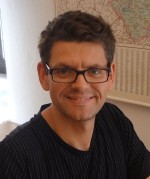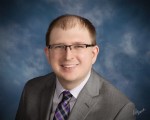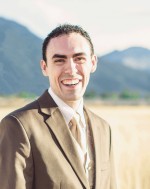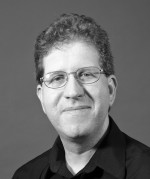All times are in Eastern Daylight Time (UTC-4h)
| 9:00-9:10am | Welcome |
| 9:10-10:30am | Tadeusz Pilat - Greek Catholics in Poland and Family Research Poland was and still is predominantly Roman Catholic. Most of the Greek Catholics lived in South-Eastern part of Poland. Before WWII this religious group was about 11% of the whole population. Most of the Polish genealogical databases available online are Roman Catholic oriented. Several years ago a private indexing project of Greek Catholic records started. This lecture presents some history of Greek Catholics in Poland and also talks about the uniqueness of this group with an emphasis on genealogical research. |
| 10:30-10:40am | Stretch break |
| 10:40-11:40am | Justin Houser - Introduction to Ukrainian Genealogy This talk will present the fundamentals of genealogical research of ancestors from Ukraine and its vicinity, including research methods and sources of records both in North America and Europe. |
| 11:40am-noon | Stretch break |
| noon-1:00pm | Paul Woodbury - Introduction to DNA and Genetic Genealogy DNA testing is a universal genealogical resource regardless of the geographic region in which you are researching. Nevertheless, DNA testing is more prevalent in some geographic regions than others, so applying genetic genealogy methodologies in some areas like Ukraine may require special considerations. One means of overcoming geographic limitations in relation to DNA testing is to pursue targeted DNA testing plans. In this session, learn to craft effective genetic genealogy research questions and objective, apply the four types of genetic inheritance to your objective, and identify the best testing candidates to address your research question. |
| 1:00-1:10pm | Stretch break |
| 1:10-2:10pm | Michael Andrec - A Historical Overview of Ukraine "My parents said our family was Ukrainian going way back, but my grandmother always insisted she was Austrian..." "I thought my family was Russian!" This talk will try to resolve some of the confusion and conundrums encountered by beginning family historians by describing the changing borders, appearance and disappearance of nations and empires, and migration (both voluntary and forcible). |
| 2:10-2:20pm | Wrap-up |
Tadeusz H. Pilat was born in Silesia, Poland (previously Schlesien, in Germany). He currently resides in eastern Poland and Germany. He pursued Library studies at the University of Maria Curie-Sklodowska in Lublin, Poland, focusing on the history of books and old documents. He specialized in "Supralibros" in Private Collections of the 16th to 18th centuries. In 1999, he was granted the degree of Master of Library and Information Science.
In 2003, Tadeusz became an Accredited Genealogist specializing in Polish research, including all partitions of the former Commonwealth of Poland. This accreditation was awarded by the International Commission for the Accreditation of Professional Genealogists (ICAPGen) http://www.icapgen.org/icapgen/. Because of his study of Information Science, Tadeusz is very interested in creating electronic databases, and he is working on a Lemko Extraction Project http://lemkorusyn.org/index.php. Currently Tadeusz is also involved in a project of early (pre-1830) Mennonite property records in Polish archival repositories. He enjoys traveling to foreign countries such as USA, Denmark, Germany, Czech Republic, Lithuania, Ukraine, Slovakia, England, Russia, Mongolia, and Libya (North Africa) where he lived for a while. In addition to being fluent in Polish, German, and English, he can read Latin, Russian Cyrillic and old German scripts. Tadeusz has given lectures on genealogy in Warsaw and Opole, Poland, as well as San Antonio, Texas, Salt Lake City and New Britain. Tadeusz is a cofounder of the HISTORIAE Genealogical Company located in Poland http://www.historiae.pl/ [so far the website is available only in Polish].
If you have any questions regarding research in eastern Europe please do not hesitate to contact Tadeusz by e-mail <thpilat@gmail.com> and he will be glad to assist you. Will gladly furnish references in the USA or through the LDS Library in Salt Lake City.







